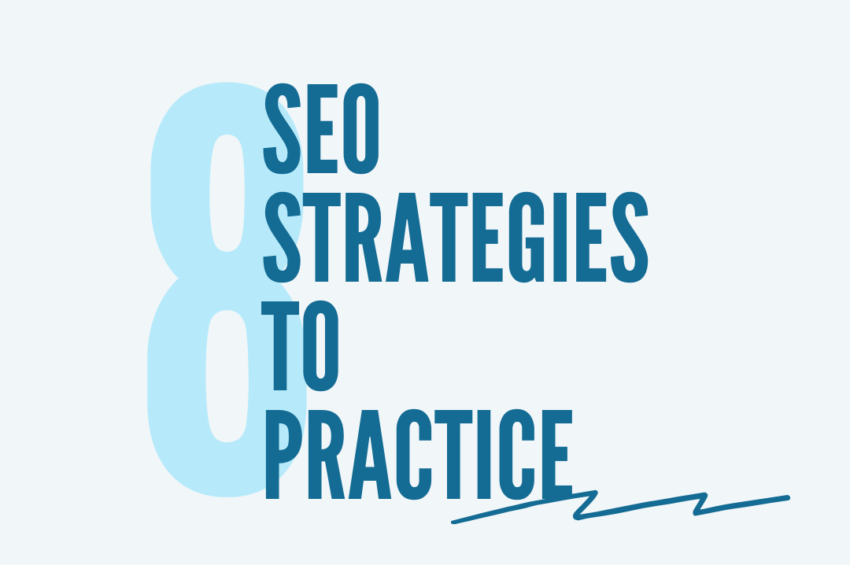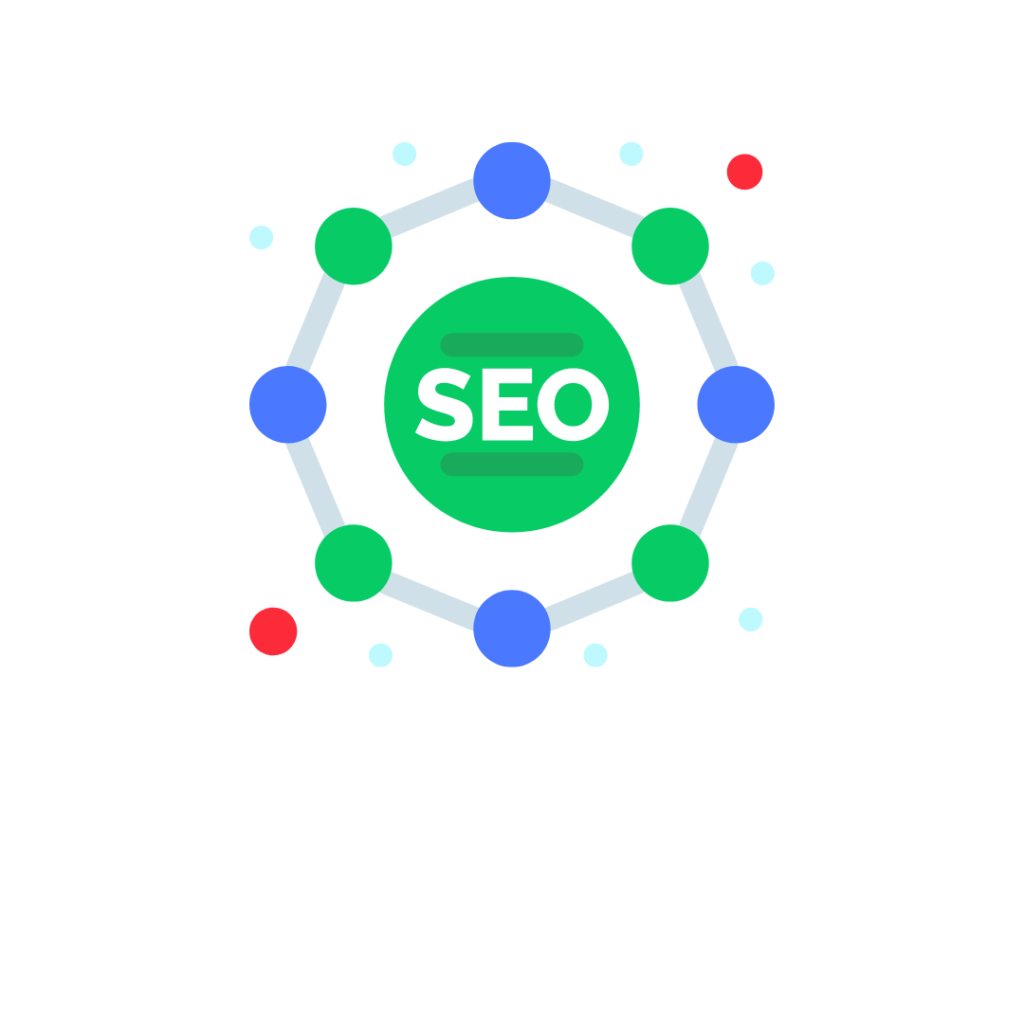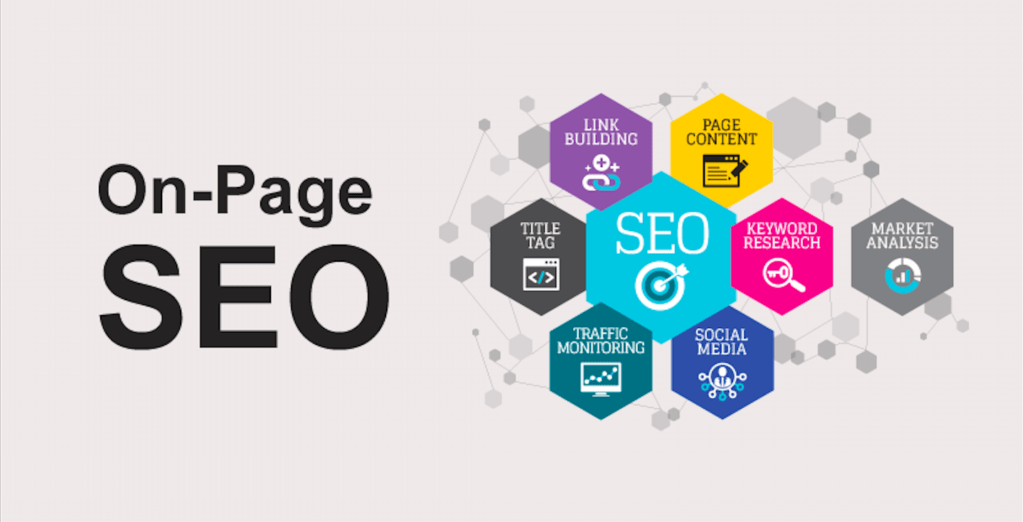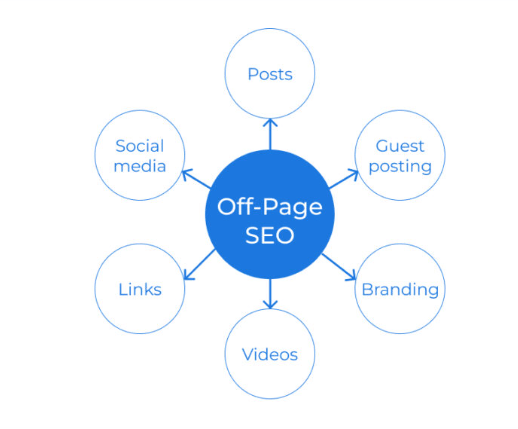
1. Understanding the Importance of SEO
2. Keyword Research: The Foundation of SEO
3. On-Page Optimization Techniques for Higher Rankings
4. Off-Page SEO: Building Authority and Trust
5. Creating Engaging Content to Improve SEO
6. Technical SEO: Optimizing for Search Engine Crawlers
7. Measuring SEO Success: Analytics and Tracking
8. Staying Ahead with SEO: Trends and Future Considerations
In today’s digital landscape, having a strong online presence is crucial for the success of any business. And when it comes to increasing visibility and driving organic traffic to your website, search engine optimization (SEO) plays a pivotal role. Implementing effective SEO strategies can help your website rank higher in search engine results, attract more targeted traffic, and ultimately boost conversions. This article will delve into the best SEO strategies that can elevate your online presence and provide actionable insights on various aspects of SEO, including keyword research, on-page optimization, off-page SEO, content creation, technical optimization, and measuring SEO success. By understanding and implementing these strategies, you can enhance your website’s visibility, reach a wider audience, and stay ahead of the competition in the digital realm.
1. Understanding the Importance of SEO

1.1 What is SEO?
SEO – it sounds like a mysterious acronym that tech geeks throw around, but what does it really mean? SEO stands for Search Engine Optimization, and it’s the art of making your website rank higher in search engine results. In other words, it’s about getting your website to show up on the first page of Google, Bing, or whatever search engine your potential customers are using.
1.2 Why is SEO Important for Businesses?
If you have a business, whether it’s big or small, online or offline, SEO is crucial. In today’s digital age, people rely on search engines to find products, services, and information. If your website is buried on page 10 of search results, chances are nobody will ever find it. But if you appear on that coveted first page, you’ll get more visibility, more traffic, and ultimately, more customers.
1.3 The Role of SEO in Driving Organic Traffic
Organic traffic is the holy grail of website traffic. It’s the kind of traffic you get when people find your website through a search engine, without any paid advertising. And guess what? SEO is the secret sauce that can drive that organic traffic to your website. By optimizing your website for relevant keywords and improving its overall visibility, you can attract a steady stream of visitors who are genuinely interested in what you have to offer.
2. Keyword Research: The Foundation of SEO

2.1 What is Keyword Research?
Imagine you’re looking for a pizza place nearby. What would you type into the search bar? “Pizza near me,” right? Those words you typed are keywords, and they play a crucial role in SEO. Keyword research is the process of finding and analyzing the right keywords that your target audience is likely to use when searching for your products or services.
2.2 Tools and Techniques for Effective Keyword Research
Luckily, you don’t have to rely on guesswork to find the right keywords. There are plenty of tools and techniques available to help you. Tools like Google Keyword Planner, Moz Keyword Explorer, and SEMrush can give you valuable insights into keyword search volume, competition, and related keywords. By using these tools and techniques, you can optimize your website for the most relevant and high-performing keywords.
2.3 Analyzing Competition and Search Volume
Keyword research isn’t just about finding the right keywords; it’s also about understanding your competition and the search volume associated with each keyword. Analyzing competition helps you identify the keywords that are easier to rank for, giving you a better chance of appearing on that first page of search results. Similarly, understanding search volume helps you prioritize your efforts and focus on the keywords that have the highest potential to drive traffic.
3. On-Page Optimization Techniques for Higher Rankings

3.1 Importance of On-Page Optimization
Once you’ve identified your target keywords, it’s time to optimize your website to make search engines fall in love with it. On-page optimization refers to the tweaks and improvements you make directly on your website to improve its visibility in search engine results. From optimizing title tags and meta descriptions to creating SEO-friendly content, on-page optimization is a critical part of your SEO strategy.
3.2 Optimizing Title Tags and Meta Descriptions
Title tags and meta descriptions are like the billboards of the internet. They show up in search engine results and give users a sneak peek into what your page is all about. By optimizing your title tags and meta descriptions with relevant keywords and compelling copy, you can entice users to click on your website and improve your chances of ranking higher.
3.3 Structuring URLs and Heading Tags
URLs and heading tags may not sound glamorous, but they play an important role in SEO. Search engines pay attention to the structure of your URLs and the use of heading tags (H1, H2, etc.) to determine the relevance and hierarchy of your content. By structuring URLs that include keywords and using heading tags to organize your content, you can make it easier for search engines to understand and rank your website.
3.4 Creating SEO-friendly Content
Content is king in the digital realm, and it’s no different when it comes to SEO. Creating SEO-friendly content means crafting engaging, informative, and keyword-rich content that not only satisfies your readers but also search engines. By incorporating your target keywords naturally throughout your content, you can signal to search engines that your website is a valuable resource for users searching with those keywords.
4. Off-Page SEO: Building Authority and Trust

4.1 Understanding Off-Page SEO
Off-Page SEO is like networking for your website. It involves activities that take place outside of your website to improve its reputation, authority, and visibility across the web. Search engines consider off-page factors, such as backlinks, social media mentions, and online reputation, when determining the trustworthiness and popularity of your website.
4.2 Building High-Quality Backlinks
Backlinks are like votes of confidence from other websites. The more high-quality and relevant websites link back to your content, the more search engines will perceive your website as trustworthy and authoritative. Building backlinks can be done through various strategies, such as guest blogging, influencer outreach, or creating link-worthy content that others naturally want to link to.
4.3 Social Media and its Impact on Off-Page SEO
Social media isn’t just a platform for sharing cute pictures of cats or arguing about politics. It also plays a role in your off-page SEO efforts. Social media can help you generate buzz around your brand, increase brand awareness, and attract more visitors to your website. By engaging with your audience on social media and sharing valuable content, you can boost your website’s visibility and indirectly improve your search engine rankings.
4.4 Online Reputation Management and Brand Building
In the era of online reviews and viral tweets, your online reputation matters. Positive online reviews, mentions, and testimonials can enhance your brand’s credibility and attract more customers. On the flip side, negative reviews and poor reputation can be detrimental to your business. By actively managing your online reputation, addressing customer feedback, and building a strong brand presence, you can improve your off-page SEO and establish trust with your audience.
Remember, SEO is an ongoing process, and it requires time, effort, and continuous optimization. By understanding the importance of SEO, conducting thorough keyword research, optimizing your on-page elements, and building off-page authority, you can develop a winning SEO strategy that drives more organic traffic and helps your business thrive in the digital landscape. So, get ready to climb those search engine rankings and be found by your target audience!7.3 Tracking Progress and Adjusting Strategies
5. Creating Engaging Content to Improve SEO

When it comes to improving your website’s SEO, creating engaging content is like hitting the jackpot. Not only does it help you rank higher in search engine results, but it also keeps your audience hooked and coming back for more. It’s a win-win!
5.1 The Connection between Content and SEO
Content and SEO go together like peanut butter and jelly. In fact, search engines love content that is relevant, useful, and engaging. When your content ticks all these boxes, it signals to search engines that your website is valuable, which in turn boosts your SEO rankings. So, put on your creative hat and start crafting content that your audience will love.
5.2 Strategies for Creating SEO-Optimized Content
To create SEO-optimized content, start by understanding your target audience and their needs. Research keywords that are relevant to your content and incorporate them naturally throughout your article. Make sure to focus on quality over quantity, as search engines prioritize well-written and informative content. And here’s a pro-tip: don’t forget to optimize your title tags and meta descriptions to make your content stand out in search results.
5.3 Incorporating Keywords and User Intent
Keywords are like the secret sauce of SEO. By strategically incorporating relevant keywords into your content, you not only improve your chances of ranking higher but also ensure that your content aligns with what users are searching for. However, don’t overdo it! Keyword stuffing can do more harm than good. Instead, focus on creating content that caters to the user’s intent and provides them with the information they’re looking for.
5.4 The Importance of Regularly Updating Content
Imagine going to a website only to find outdated information from five years ago. It’s a major turn-off, right? That’s why regularly updating your content is crucial for maintaining a strong SEO performance. Not only does it show search engines that your website is active and relevant, but it also provides your audience with fresh and up-to-date information. So, dust off those old blog posts and give them a fresh coat of paint to keep your SEO game strong.
6. Technical SEO: Optimizing for Search Engine Crawlers

Now that we’ve covered the content side of SEO, let’s dive into the nitty-gritty of technical SEO. It’s all about making your website easily accessible and understandable for search engine crawlers. Think of it as creating a roadmap for search engines to navigate through your website with ease.
6.1 Introduction to Technical SEO
Technical SEO might sound intimidating, but fear not! It simply refers to the optimization techniques that focus on the technical aspects of your website, such as its structure, navigation, and speed. By ensuring that these elements are in tip-top shape, you’re making it easier for search engines to crawl and index your website, ultimately improving your SEO performance.
6.2 Website Structure and Navigation
Imagine trying to find your way through a maze with no clear paths or signposts. Frustrating, right? The same goes for search engine crawlers. By organizing your website’s structure and navigation in a logical and user-friendly way, you’re not only helping your visitors find what they’re looking for but also guiding search engines to the most important parts of your site. So, keep it simple, organized, and easy to navigate.
6.3 Mobile Optimization and Responsiveness
In a world where everyone seems to be glued to their smartphones, it’s no surprise that mobile optimization is a crucial aspect of technical SEO. With more and more people browsing the internet on their mobile devices, search engines prioritize websites that are mobile-friendly and responsive. So, make sure your website is optimized for a seamless mobile experience to keep both your users and search engines happy.
6.4 Page Speed and Load Time Optimization
Patience is a virtue, but not when it comes to website load times. Slow-loading websites can be a major turn-off for both users and search engines. After all, who wants to wait around for a website to load when there are plenty of other options available? By optimizing your website’s page speed and reducing load times, you’re not only improving the user experience but also giving your SEO rankings a boost. So, make sure your website is as fast as a cheetah on steroids.
7. Measuring SEO Success: Analytics and Tracking

You’ve put in the hard work, implemented the best SEO strategies, and now it’s time to see how well you’re doing. This is where analytics and tracking come into play. By measuring the success of your SEO efforts, you can identify what’s working, what needs improvement, and make data-driven decisions to boost your rankings.
7.1 Setting Up SEO Analytics
Before you can start tracking your SEO success, you need to set up analytics tools. Google Analytics is a popular choice that provides valuable insights into your website’s performance. By installing the necessary tracking codes and setting up goals, you’ll have a wealth of data at your fingertips to help you evaluate your SEO performance.
7.2 Key Metrics for SEO Analysis
When it comes to analyzing your SEO performance, there are a few key metrics you should keep an eye on. These include organic traffic, bounce rate, click-through rate, and conversion rate. By monitoring these metrics, you can gauge the effectiveness of your SEO strategies and make adjustments if needed.
7.3 Tracking Progress and Adjusting Strategies
SEO is not a one-and-done deal. It’s an ongoing process that requires constant monitoring and adjustment. By regularly tracking your SEO progress, you can identify trends, spot areas for improvement, and tweak your strategies accordingly. Stay nimble, adapt to changes, and never stop optimizing.
8. Staying Ahead with SEO: Trends and Future Considerations
ALSO READ- Future Trends In Digital Marketing (2024)
The world of SEO is ever-evolving, with new trends and technologies shaping the search landscape. To stay ahead of the game, it’s crucial to keep an eye on emerging trends and adapt your strategies accordingly.
8.1 The Ever-Changing Landscape of SEO
SEO is like a rollercoaster ride. Just when you think you’ve got it all figured out, a new algorithm update or trend comes along and shakes things up. It’s important to stay informed and adapt your strategies to align with the ever-changing landscape of SEO. Embrace the change, or get left behind in the dust of outdated techniques.
8.2 Voice Search and Mobile Optimization
In conclusion, implementing the best SEO strategies is essential in today’s competitive online landscape. By understanding the importance of SEO and utilizing techniques such as keyword research, on-page and off-page optimization, content creation, technical optimization, and tracking analytics, you can significantly improve your website’s visibility and attract more organic traffic. Remember, SEO is an ongoing process that requires constant adaptation to changes in search engine algorithms and user behavior. Stay informed, stay proactive, and continue refining your SEO strategies to achieve long-term success and stay ahead of the competition in the digital realm.
FAQ
1. How long does it take to see results from SEO?
SEO is a long-term strategy, and the time it takes to see results can vary depending on various factors such as the competitiveness of your industry, the quality of your website, and the effectiveness of your SEO efforts. Generally, it can take several months to start seeing noticeable improvements in your website’s rankings and organic traffic. Patience and consistent optimization efforts are key in achieving sustainable and long-lasting SEO results.
2. Is it necessary to hire an SEO agency or can I do it myself?
Whether to hire an SEO agency or handle SEO in-house depends on your resources, expertise, and the complexity of your SEO needs. While some businesses may have the knowledge and resources to handle SEO internally, others may benefit from the specialized knowledge and experience of an SEO agency. An experienced SEO agency can provide valuable insights, save time, and implement advanced strategies to drive better results. However, it is important to research and choose a reputable agency that aligns with your goals and budget.
3. Are there any SEO strategies that can harm my website?
While SEO aims to improve your website’s visibility and rankings, certain unethical or outdated SEO practices can harm your website’s reputation and even result in penalties from search engines. Practices such as keyword stuffing, buying backlinks, cloaking, or duplicating content are considered black hat SEO techniques and should be avoided. It’s essential to focus on white hat SEO techniques that comply with search engine guidelines and prioritize providing value to users through quality content and a positive user experience.



